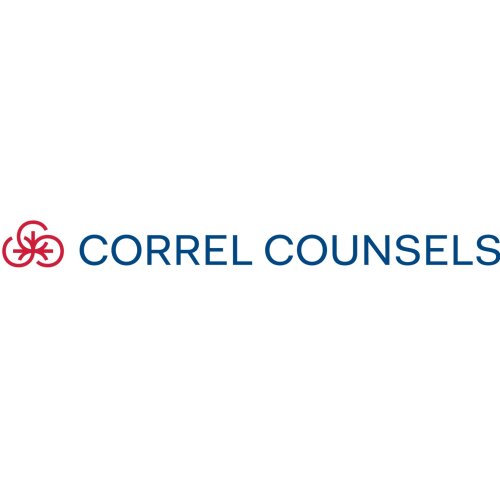Best Climate Change Law Lawyers in Malé
Share your needs with us, get contacted by law firms.
Free. Takes 2 min.
List of the best lawyers in Malé, Maldives
About Climate Change Law in Malé, Maldives
Climate Change Law in Malé, Maldives, refers to the body of rules, regulations, and policies that address the impacts of climate change, promote adaptation and mitigation strategies, and support the country’s sustainable development. As a low-lying island nation, the Maldives is one of the most climate-vulnerable countries in the world. The capital, Malé, is especially exposed to sea level rise, coastal erosion, and extreme weather events. The government of the Maldives has taken an active role both domestically and internationally to combat climate change through legislation, policies, and participation in global agreements such as the Paris Agreement. Laws and regulations specifically target carbon emissions, coastal protection, waste management, land use, renewable energy, and the protection of marine ecosystems.
Why You May Need a Lawyer
Understanding and navigating Climate Change Law in Malé can be complex. You may need a lawyer in various situations, such as:
- Businesses facing new regulations about emissions, energy use, or environmental impact assessments
- Property owners or developers dealing with coastal protection, building codes, or land reclamation
- NGOs and advocacy groups seeking to participate in environmental policy or challenge environmentally harmful activities
- Individuals or communities affected by climate change impacts, like flooding or loss of property, needing representation
- Companies interested in renewable energy projects or accessing green funding
- Anyone involved in disputes over compliance with environmental standards or government enforcement actions
- International businesses needing to comply with both local laws and international agreements
A legal expert can help interpret relevant laws, facilitate necessary permits, ensure compliance with regulations, and provide representation in legal proceedings.
Local Laws Overview
Malé, as the administrative center, is governed by national Maldivian law and local ordinances relevant to climate change. Significant pieces of legislation and policy include:
- Environmental Protection and Preservation Act (EPPA) 1993: The primary framework mandating environmental management, requiring Environmental Impact Assessments (EIA) for certain projects, and outlining penalties for violations.
- Climate Change Policy Framework 2015: Sets national priorities on adaptation, mitigation, capacity building, and low-emission development.
- Nationally Determined Contributions (NDCs): Maldives’ commitments under international treaties to reduce carbon emissions and increase climate resilience.
- Coastal Zone Management Regulations: Rules for construction, reclamation, and activity near the shoreline to minimize erosion and flooding risk.
- Waste Management Regulations: Laws governing hazardous and municipal waste, relevant to climate change through greenhouse gas emissions from waste.
- Renewable Energy Initiatives: Polices promoting solar and other renewable energy projects, with incentives for businesses and individuals.
Local authorities in Malé implement and enforce these regulations, sometimes with additional requirements specific to the city’s needs. The legal landscape is constantly evolving as the country adapts to new climate challenges and international commitments.
Frequently Asked Questions
What is Climate Change Law?
Climate Change Law covers laws and policies that aim to address the impacts of climate change. This includes rules on emissions, adaptation strategies, renewable energy, coastal and marine protection, land use planning, and obligations from international agreements.
Are Environmental Impact Assessments (EIA) required for construction in Malé?
Yes, most development projects, especially those near the coast, require an EIA under national law. The assessment evaluates the potential environmental impacts of a project and must be approved before construction starts.
What are the penalties for failing to comply with climate or environmental regulations?
Penalties can include fines, orders to halt or modify operations, cleanup requirements, and even criminal charges in cases of negligence or deliberate violations.
Can private individuals or communities bring legal action over climate-related damages?
Yes, under certain circumstances, individuals or communities affected by climate-related harm may be able to bring claims or seek compensation. Legal advice is important to determine the appropriate grounds and procedures.
How does Malé address sea level rise in its laws?
Laws and city planning documents include requirements for coastal protection, restrictions on building close to the shoreline, and special measures for vulnerable areas. These are enforced by local and national authorities.
Is renewable energy promoted by law in the Maldives?
Yes, there are regulations and incentives to encourage the use and development of renewable energy such as solar, including tax benefits, grants, and streamlined permitting for qualifying projects.
How can my business ensure compliance with climate regulations?
Businesses should seek legal advice to review relevant laws, conduct compliance audits, obtain necessary permits, and stay informed of changes in regulations to avoid fines or operational interruptions.
Does international climate law affect businesses in Malé?
Yes, businesses must comply with both local laws and the Maldives’ international commitments, such as the Paris Agreement, which can directly influence regulations and reporting requirements.
Are foreign companies subject to climate-related laws in Malé?
All businesses operating in Malé, whether local or foreign, must comply with Maldivian climate and environmental laws.
Where can I find official information about climate laws in the Maldives?
Official information is available through government agencies such as the Ministry of Environment, Climate Change and Technology and the Environmental Protection Agency.
Additional Resources
If you need more information or assistance regarding Climate Change Law in Malé, the following organizations may be valuable:
- Ministry of Environment, Climate Change and Technology - Responsible for national climate policy and environmental regulation
- Environmental Protection Agency (EPA) - Implements and enforces environmental laws including EIAs and coastal management
- Maldives Attorney General’s Office - Provides legal oversight and publishes legislative materials
- Maldives Law Institute - Offers educational resources and publications on environmental law
- Maldives National Disaster Management Authority - Relevant for policies on climate adaptation and disaster risk reduction
- Local NGOs such as Bluepeace Maldives and Transparency Maldives - Advocacy and public awareness on climate issues
Next Steps
If you believe you need legal advice or representation concerning Climate Change Law in Malé, consider the following steps:
- Identify your specific concern or objective related to climate law, such as compliance questions, a dispute, or project planning
- Collect relevant documents including permits, project proposals, correspondence, and any notices received from authorities
- Contact a lawyer or legal firm with experience in environmental or climate change law in the Maldives
- Arrange a consultation to discuss your situation and clarify what legal actions may be necessary
- Follow your lawyer’s advice on next steps, including submitting applications, responding to enforcement actions, or engaging in negotiations
- Stay informed about changes in local and national climate law that may impact your interests
Taking timely action with qualified legal guidance is the best way to protect your rights and ensure compliance with the evolving landscape of Climate Change Law in Malé, Maldives.
Lawzana helps you find the best lawyers and law firms in Malé through a curated and pre-screened list of qualified legal professionals. Our platform offers rankings and detailed profiles of attorneys and law firms, allowing you to compare based on practice areas, including Climate Change Law, experience, and client feedback.
Each profile includes a description of the firm's areas of practice, client reviews, team members and partners, year of establishment, spoken languages, office locations, contact information, social media presence, and any published articles or resources. Most firms on our platform speak English and are experienced in both local and international legal matters.
Get a quote from top-rated law firms in Malé, Maldives — quickly, securely, and without unnecessary hassle.
Disclaimer:
The information provided on this page is for general informational purposes only and does not constitute legal advice. While we strive to ensure the accuracy and relevance of the content, legal information may change over time, and interpretations of the law can vary. You should always consult with a qualified legal professional for advice specific to your situation.
We disclaim all liability for actions taken or not taken based on the content of this page. If you believe any information is incorrect or outdated, please contact us, and we will review and update it where appropriate.
















